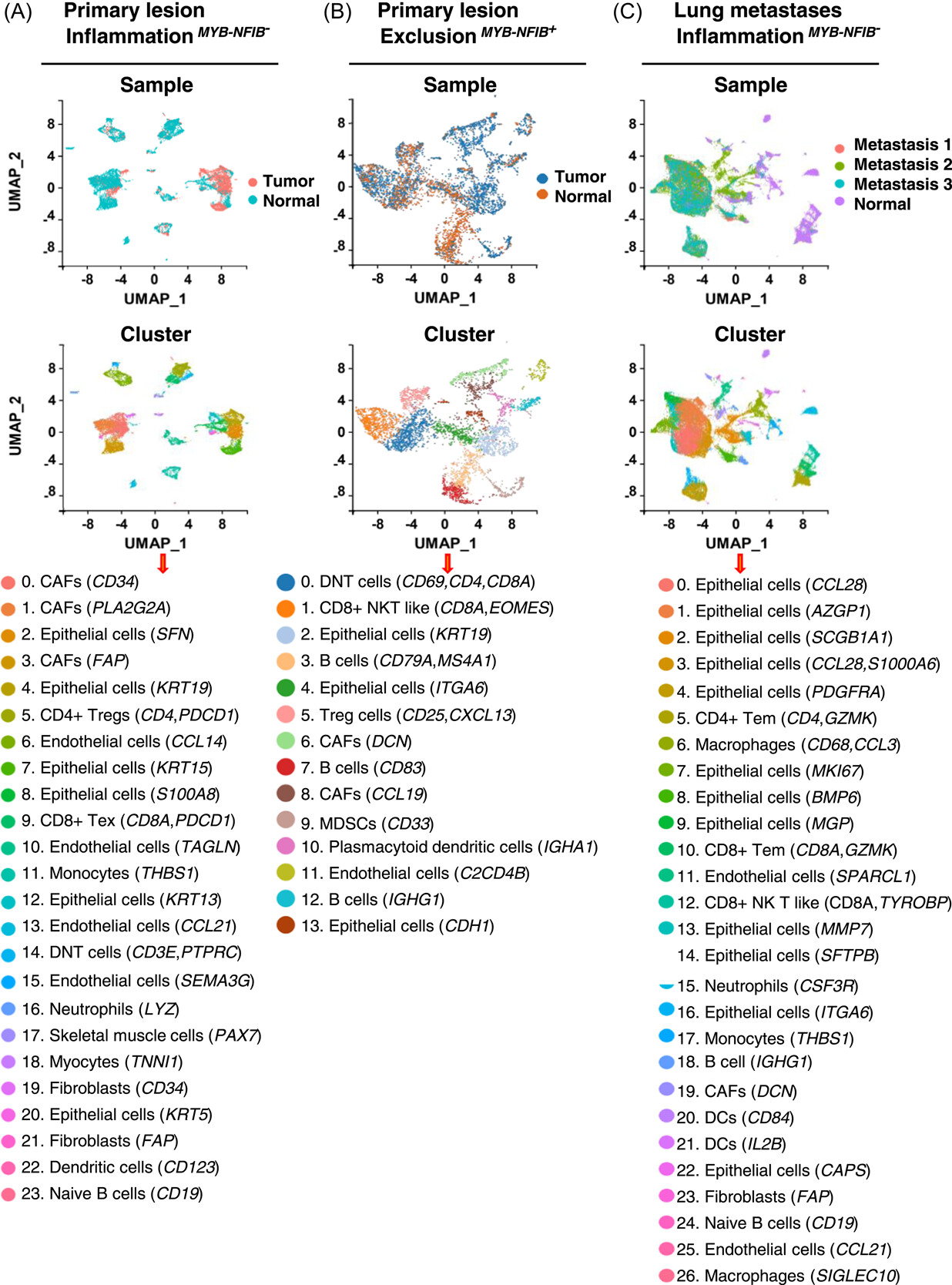MedComm-oncology | NKT cells contribute to alleviating lung metastasis in adenoid cystic carcinoma

Open the phone and scan

UMAP image of three cases of primary and metastatic tumors. (A) Primary lesion, inflammatory phenotype without MYB-NFIB fusion. (B) Primary lesion, immune-exclusive phenotype with MYB-NFIB
Salivary adenoid cystic carcinoma (SACC) with a unique MYB-NFIB fusion has been considered an “immune-cold” tumor, but the mechanisms behind this remain unclear. In this study, we analyzed the immune status of 29 SACC patients and found that most lung metastases exhibited an immunoinflammatory state, in contrast to the primary SACC tissues. Single-cell sequencing data showed that anergic T-cell types were low in primary inflammatory tissues, while inflammatory metastatic lung tissues had elevated levels of anergic CD8+ natural killer T (NKT)-like cells and low levels of memory T cells. Primary exclusive tissues had high levels of myeloid-derived suppressor cells (MDSCs) and low levels of activated CD8+ NKT-like cells. These data support the fact that metastatic SACC cells might induce a stronger immune response in the lung. Additionally, an in vivo experiment showed that a minimally invasive SACC cell line with higher expression of human leukocyte antigens -B and -C induced NKT cell activation in mice and effectively attenuated the incidence of lung metastases caused by a highly invasive SACC cell line. This suggests that NKT therapy may be active in treating SACC lung metastasis. Conclusively, this study sheds light on the immune microenvironment of SACC and highlights the potential of NKT-based therapy.
Article Access: https://doi.org/10.1002/mog2.29
More about MedComm-Oncology: https://onlinelibrary.wiley.com/journal/27696448
Looking forward to your contributions.


